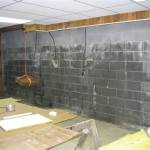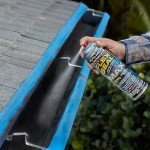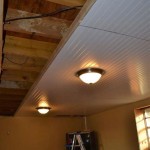What Is Better For Basement: Vinyl or Laminate Flooring?
Basements are often overlooked spaces, but with a little creativity and the right flooring, they can be transformed into comfortable living areas, home offices, or entertainment centers. Choosing the appropriate flooring is crucial for achieving a successful basement renovation, and two popular options stand out: vinyl and laminate flooring. Both offer attractive aesthetics and durability, but each comes with unique advantages and drawbacks. This article explores the key considerations when deciding between vinyl and laminate flooring for your basement.
Water Resistance and Moisture Control
Basements are notorious for experiencing moisture issues, whether from occasional leaks, humidity, or even just the inherent dampness of the space. This poses a significant challenge for flooring materials, as water damage can lead to warping, mold growth, and an overall unpleasant environment. In this regard, vinyl flooring holds a clear advantage over laminate.
Vinyl flooring, particularly luxury vinyl tile (LVP) and luxury vinyl plank (LVP), is inherently waterproof. It features a waterproof core that resists water penetration, making it ideal for areas prone to spills, splashes, and even occasional flooding. Laminate flooring, on the other hand, while often boasting water-resistant features, is not truly waterproof. While some laminates may offer a limited degree of water resistance, prolonged exposure to moisture can lead to swelling and delamination, compromising the flooring's integrity. Therefore, for a basement environment, vinyl flooring's inherent waterproof nature offers greater peace of mind and long-term durability.
Durability and Wear Resistance
Durability is another crucial factor to consider for basement flooring, as these spaces often experience high traffic and potential wear and tear from furniture, heavy objects, and even the occasional dropped tool. Both vinyl and laminate flooring offer good durability, but again, vinyl tends to edge out laminate in certain aspects.
Vinyl flooring, particularly LVP and LVP, is known for its exceptional durability. It's often made with a tough, scratch-resistant wear layer that can withstand heavy foot traffic, furniture scuffs, and even pet claws. This makes vinyl an excellent choice for basements where furniture is frequently moved or where children or pets are present. Laminate flooring also features a wear layer, but it is generally less durable than vinyl's wear layer, making it more susceptible to scratches and indentations.
Installation and Maintenance
Both vinyl and laminate flooring are relatively straightforward to install, making them attractive DIY options for homeowners. However, there are some key differences in their installation processes. Vinyl flooring, particularly LVP and LVP, often come in click-together planks, which makes for a quick and relatively easy installation process. Laminate flooring also frequently uses a click-together system, but it can sometimes require more precision and care during installation.
In terms of maintenance, both vinyl and laminate flooring are relatively low-maintenance options. They typically require sweeping or vacuuming to remove dirt and debris. Vinyl flooring, being waterproof, can be easily cleaned with a damp mop, while laminate flooring needs to be cleaned with a slightly damp mop, avoiding excessive water exposure. While both options are relatively low-maintenance, vinyl flooring's water resistance makes it even more forgiving and easier to clean.

The Best Flooring Options For Your Basement

Best Flooring For Basements Laminate Luxury Vinyl Or

Laminate Flooring Vs Vinyl Plank Which Is Better

The Best Flooring Options For Your Basement

Best Flooring For Basement Floor City

Laminate Vs Vinyl Flooring What S The Difference

Lvt Vs Carpet What S Better For A Basement

Lvt Vs Carpet What S Better For A Basement
Pros And Cons Of Luxury Vinyl Flooring In Basements

Laminate Vs Vinyl Flooring What S The Difference
Related Posts







